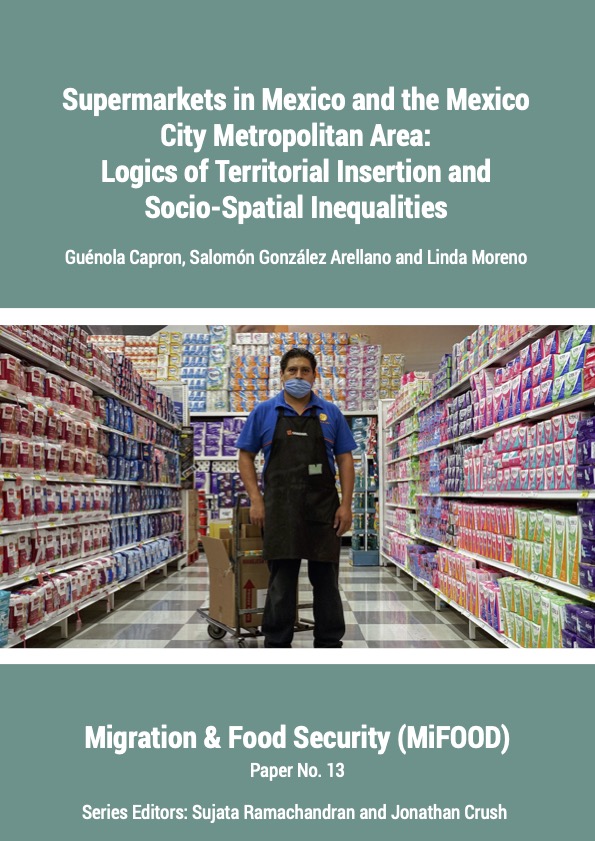The paper analyzes the logics of expansion and spatial distribution of supermarkets at three scales: global, national (Mexico), and especially metropolitan (Mexico City), from rich to poor spaces and social categories. It seeks to understand how supermarkets, in a country like Mexico where they initially target mainly the middle class, reproduce or mitigate socio-spatial disparities. We conclude that they are a factor both of mitigation (due to a relatively good distribution in the metropolitan space) and of reproduction of inequalities (due to the segmentation of the offer). In the case of Mexico City, the situation of oligopoly by the company Walmart constitutes a risk to urban food sovereignty and security.

